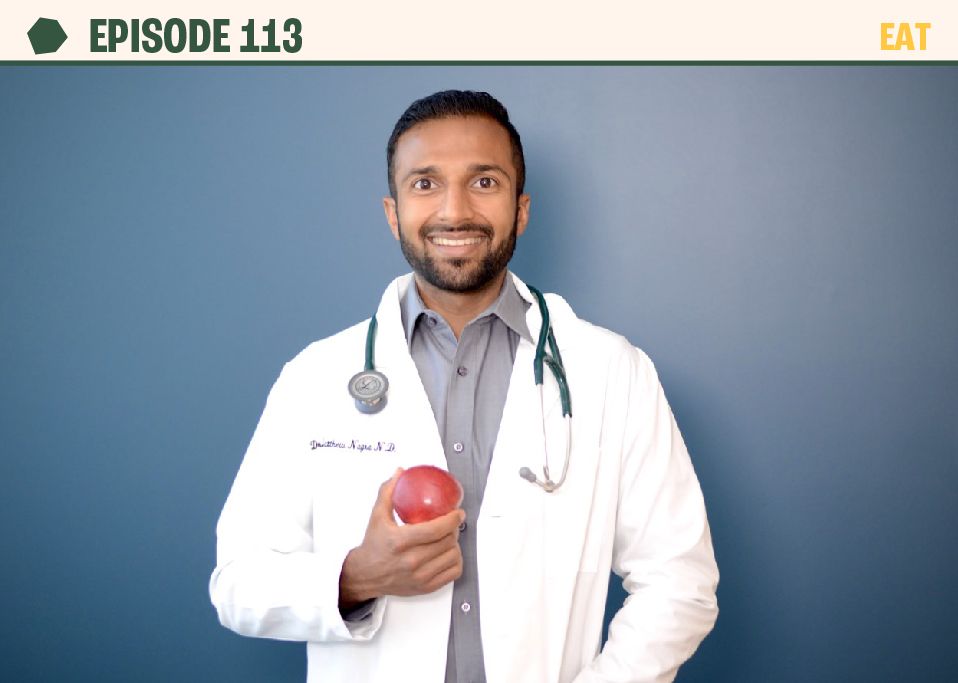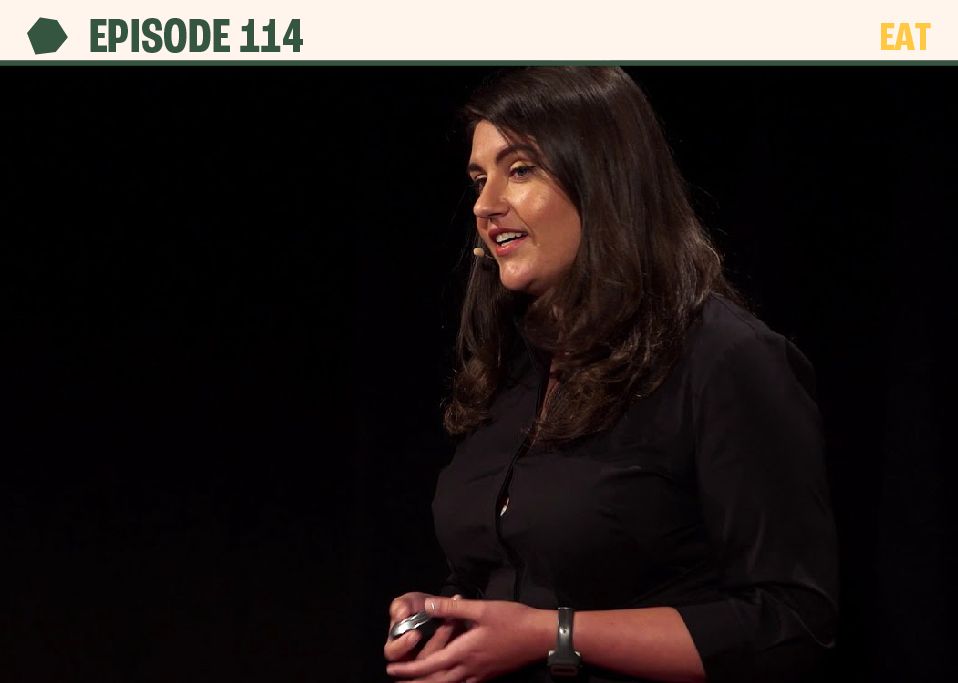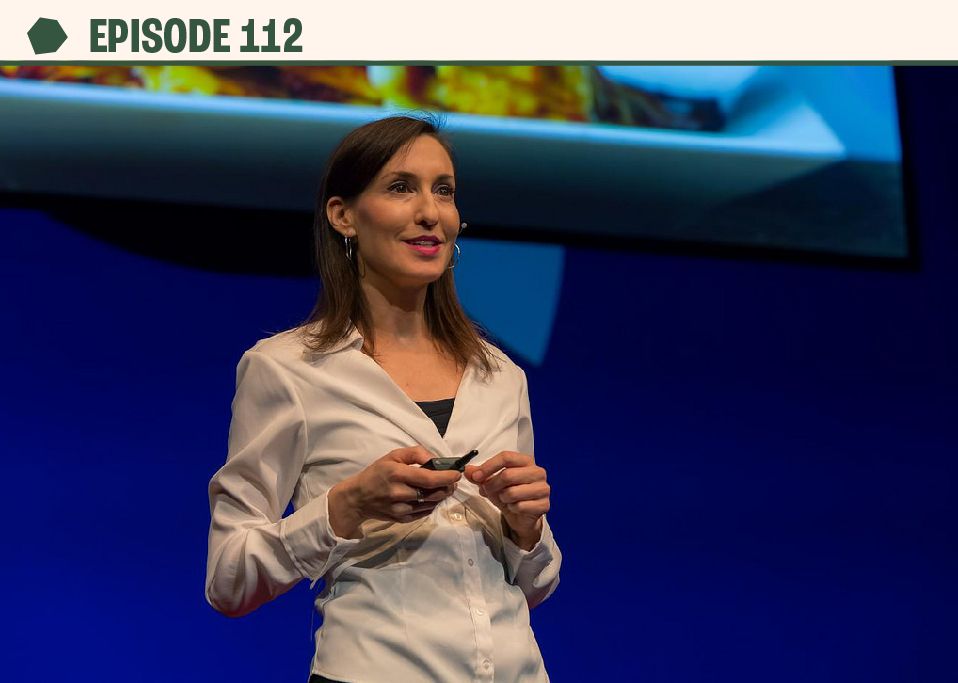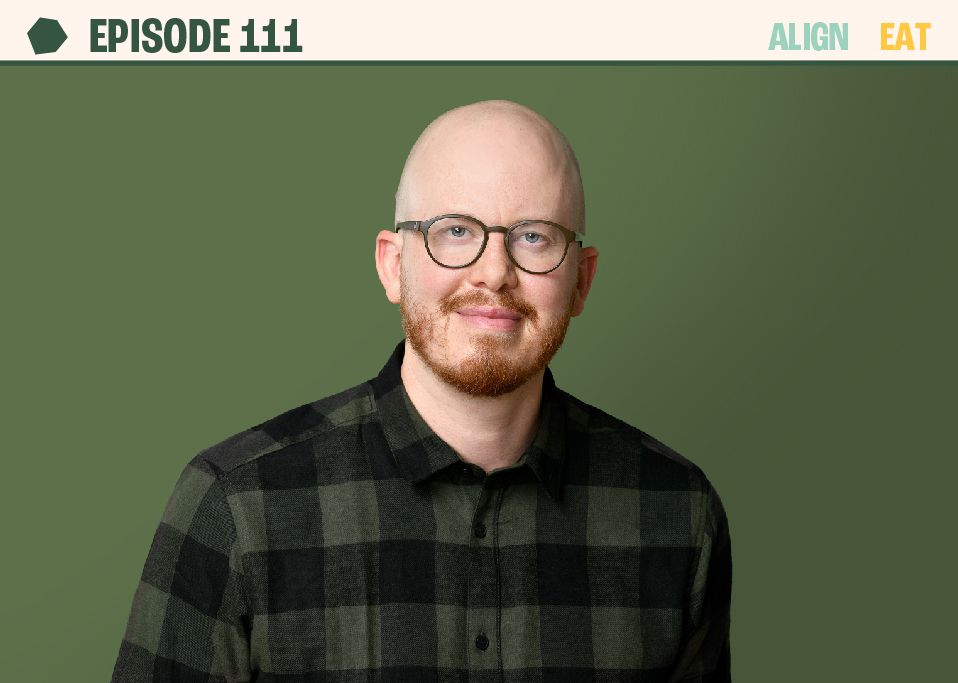In Episode #113, I sat down with Dr Matthew Nagra to talk about how he uses evidence-based nutrition science to help his patients upgrade their health. If you are looking for an episode that consolidates several topics previously raised on the show, along with findings from new research, then I think you will really enjoy this episode
We talked about the latest EPIC-Oxford study on bone health, the health advantages of people who adopt plant-predominant or exclusive diets, naturopathy as a form of health care, and important nutrients and supplements for people reducing their consumption of animal-based foods. Dr Nagra shared how he helps his patients make sustainable changes, his answers to the common questions he gets from patients (including questions about protein, soy, lectins, and cooking oils), and his personal food philosophy.
For more from Matthew Nagra, see Episodes #133, #197, #198, and the special debate episode.
The best way to support the show is to use the products and services offered by our sponsors. To check them out, and enjoy great savings, visit theproof.com/friends.
Enjoy, friends.
Simon
Additional resources:
- Learn more about Dr Nagra or connect with him for a consultation on his personal website
- Website to access full studies for free: https://sci-hub.41610.org/
- Bone Health:
- New EPIC-Oxford study: https://bmcmedicine.biomedcentral.com/articles/10.1186/s12916-020-01815-3
- How we know this study failed to properly adjust for BMI and calcium intake – the two studies below show the risk of fracture at varying BMIs and calcium intake levels. In the EPIC-Oxford study, the researchers adjusted for the wrong part of the risk curve. As this is quite complex, it will be summarised in a blog post and a post on my Instagram profile in the coming week.
- https://www.bmj.com/content/342/bmj.d1473 (calcium and bone fracture risk is nonlinear)
- https://link.springer.com/article/10.1007/s00198-005-1863-y (BMI and bone fracture risk is nonlinear)
- For a deep dive into the above studies, I recommend watching Dr Avi Bitterman’s summary: https://www.youtube.com/watch?v=9RULbeJnfIg&t=3819s
- Soy
- 2020: Umbrella Review: https://pubmed.ncbi.nlm.nih.gov/31584249/
- Case study of a man consuming around twelve servings of soy per day: https://pubmed.ncbi.nlm.nih.gov/18558591/
- Second case study of a man consuming high amounts of soy: https://www.sciencedirect.com/science/article/pii/S089990071000359X
- Health advantages of a plant-based diet:
- 4% lower risk of premature death in vegetarians and plant-based eaters (from two UK cohorts) under seventy-five years of age who haven’t changed their diet: https://www.ncbi.nlm.nih.gov/pmc/articles/PMC4691673/
- 2–12% lower risk of premature death in vegetarians (including vegans) compared with non-vegetarians in the AHS-2 American cohort: https://www.ncbi.nlm.nih.gov/pmc/articles/PMC4191896/
- Lower risk of diabetes in people adopting plant-based diets: https://www.researchgate.net/publication/51702650_Vegetarian_diets_and_incidence_of_diabetes_in_the_Adventist_Health_Study-2
- Lower risk of developing and dying from heart disease in people adopting plant-based diets: https://pubmed.ncbi.nlm.nih.gov/26853923/
- Lower risk of developing cancer in people adopting plant-based diets: https://pubmed.ncbi.nlm.nih.gov/26853923/; https://www.ncbi.nlm.nih.gov/pmc/articles/PMC4144109/
- Low-density lipoprotein as an independent risk factor for cardiovascular disease:
- The consensus statement from the European Atherosclerosis Society Consensus Panel: https://academic.oup.com/eurheartj/article/38/32/2459/3745109
- New iodine study on pescatarians, vegetarians, and vegans from Norway: https://pubmed.ncbi.nlm.nih.gov/33233534/
- Matthew Nagra, ND, Instagram and Twitter (Matt dedicates a lot of time to posting really informative content breaking down nutrition science – I highly recommend following him)







